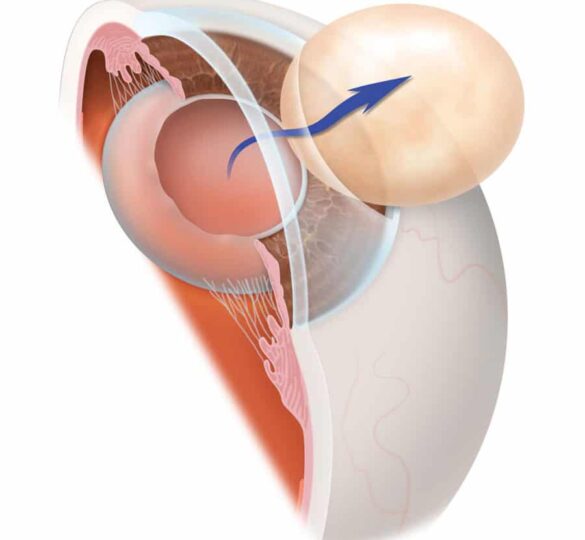Cataracts and Glaucoma
Both cataracts and glaucoma can be a natural part of the aging process. Many people over 60 may have both.

Both cataracts and glaucoma can be a natural part of the aging process. Many people over 60 may have both. Otherwise, the two are not associated.
- A cataract is an eye condition where cloudiness, or opacity in the lens, blocks or changes the entry of light, affecting vision.
- Glaucoma is a group of eye diseases that gradually steals sight without warning and often without symptoms. Vision loss is caused by damage to the optic nerve.
Cataracts and glaucoma are both serious conditions that can cause you to lose vision.
However, loss of vision due to cataracts can be reversed with surgery. Loss of vision from glaucoma is, as yet, irreversible.
Are those with glaucoma at higher risk to develop cataracts?
Those with glaucoma are usually not at higher risk to develop cataracts. There are exceptions, including those who have glaucoma due to secondary causes such as eye inflammation, eye trauma, or steroids. Also at higher risk are those with developmental conditions, such as congenital rubella, which can cause glaucoma, cataracts, or sometimes both. Both eye conditions are also more common with age, which is why many who have one disease may develop the other.
Can surgery restore vision loss from a cataract?
Unlike vision loss from glaucoma, cataract vision loss can often be regained. In most cases of cataract surgery, the cloudy lens of the eyes is removed and replaced with a clear plastic lens (called an intraocular lens implant).
The cloudy lens is removed.
The process of removing a cataract is called extracapsular lens extraction. After this process, an outer membrane lens capsule often remains. This membrane can slowly thicken and cloud vision. A laser procedure called a capsulotomy can open this membrane, restoring vision without the standard cutting procedure.
When is cataract surgery needed?
Cataract surgery is suggested when a person’s vision has declined to the point where it interferes with their usual daily tasks.
If a cataract develops in a part of the eye lens where it does not affect vision, cataract surgery may never be needed.
How will cataract surgery affect the glaucoma?
Cataract surgery can cause a change in the eye’s pressure. This change may be short-term or permanent. In general, it is not possible to predict whether the IOP will rise, fall or stay the same after cataract surgery.
Sharp increases in eye pressure are called “pressure spikes” and sometimes occur in patients after cataract surgery. Often these pressure spikes are short-term and can be treated with medicines.
If both glaucoma surgery and cataract surgery are needed, can the two procedures be combined?
The first priority is to control the person’s glaucoma. A person may have a glaucoma procedure followed by cataract surgery, or have both surgeries done at the same time. The specific approach will depend on the medical needs of the person with glaucoma.
How do cataracts and glaucoma medicines interact?
Those who have glaucoma and use adrenergic agonist medicines, such as epinephrine or Propine, may notice an increase in glare, if they have a cataract. This is because these eye drops may make the pupil larger and can expose the cataract to more light.
Others who use miotic eye drops, such as pilocarpine or carbachol, for intraocular pressure (IOP) control may find their vision lowered by the glaucoma medicines. These medicines tend to shrink the pupil, which lowers the amount of light entering the eyes. Since cataracts may already be clouding vision, this may make vision worse.
Those who have either of these problems may wish to talk to their doctor about possible treatment options, such as other medicines, laser treatment, or surgery.
Can medicine treat cataracts?
There are no current medicines that have been proven to be helpful in the treatment of cataracts.
Video: Cataracts Information
Article by Michael J. Sakamoto, MD. Last reviewed on March 16, 2022.

Michael J. Sakamoto, MD
Michael J. Sakamoto, MD is board certified in ophthalmology and is a fellow of the American Academy of Ophthalmology and the American Glaucoma society. He practices ophthalmology with a specialty in glaucoma in Modesto and Sacramento, California.